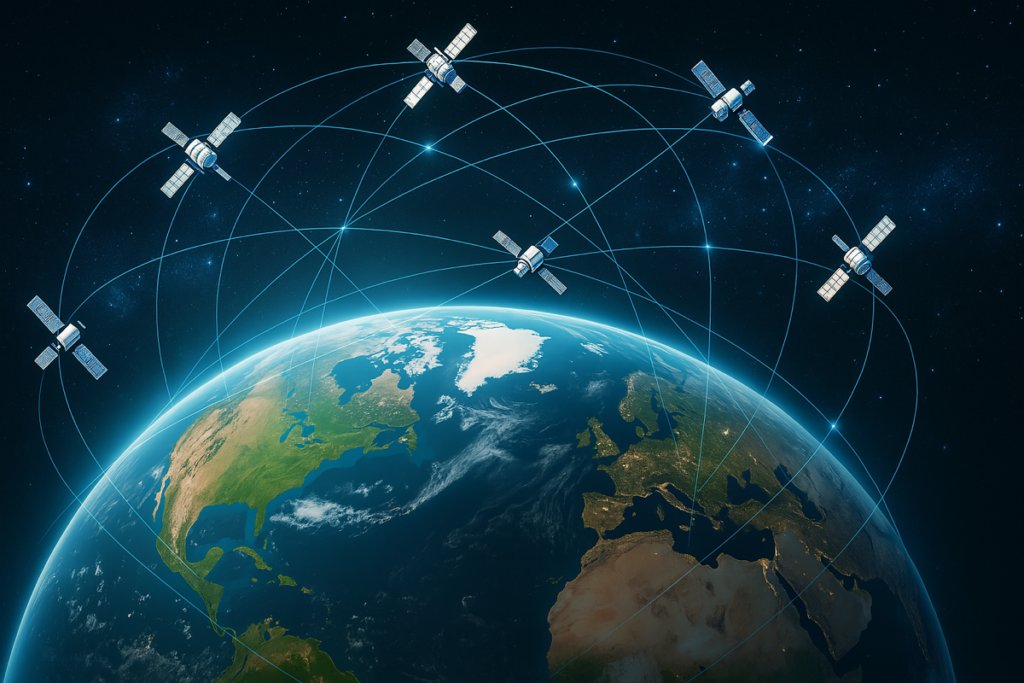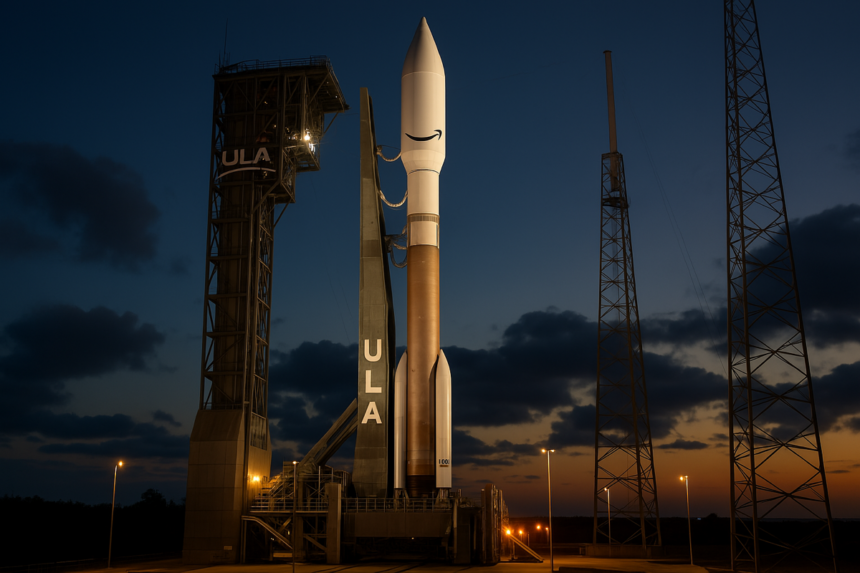Amazon’s long-anticipated Project Kuiper is about to take a major step forward. On April 9, Amazon will launch its satellite internet program’s first batch of satellites, designed to compete directly with SpaceX’s Starlink. This marks the beginning of Amazon’s journey to provide high-speed internet to remote areas of the world, particularly in underserved regions. The launch is set to happen at Cape Canaveral, Florida, using an Atlas V rocket from United Launch Alliance (ULA).
What’s Happening & Why This Matters
Amazon’s Project Kuiper will deploy its first batch of 27 satellites, a key milestone in its effort to offer global internet coverage. The launch will be carried out by United Launch Alliance aboard the Atlas V rocket, which is designed to carry large payloads into orbit. The first set of satellites will lay the foundation for Amazon’s larger plan, which includes deploying 3,236 satellites over the next few years.
The satellites will offer internet speeds of up to 400 Mbps for standard users, while businesses can access higher speeds of 1Gbps through larger dishes. These speeds could be vital for areas that are currently underserved or have no internet access at all.
Amazon’s Rajeev Badyal, VP for Project Kuiper, noted that the satellites have been developed using cutting-edge technology. This includes phased array antennas, highly advanced processors, and solar arrays to support long-term sustainability. Additionally, the satellites will be equipped with advanced optical inter-satellite links, enabling communication between the satellites in the network and ensuring efficient data transfer.
Advancements and Challenges

Project Kuiper is designed to be much more than just a competitor to Starlink. One of the most notable aspects of Amazon’s system is its capacity to provide internet to remote regions and urban centers. The satellites’ design focuses on maximizing data throughput while minimizing latency. Optical inter-satellite links set Amazon apart, as they allow for faster communication compared to traditional radio frequency links.
However, Amazon faces some challenges. The FCC requires Amazon to launch half its satellite constellation by July 2026 or risk losing its operating license. Meeting this deadline requires Amazon to launch many satellites in a very short time. Additionally, Starlink already has a head start with over 5 million users, making competition for satellite internet customers intense.
What’s at Stake
While Starlink remains the dominant player in satellite internet, Amazon is not backing down. Project Kuiper is not only a direct challenge to Starlink but also Amazon’s effort to address the lack of internet access in underserved markets. By launching these satellites, Amazon hopes to level the playing field for millions of people worldwide who do not have reliable access to high-speed internet.
Amazon has already signed agreements with companies to provide satellite services for IoT (Internet of Things) applications, communications, and remote sensing. In addition to its satellite internet ambitions, Project Kuiper will support climate monitoring and resource management, providing solutions for sustainable development.

TF Summary: What’s Next
The launch of Amazon’s Project Kuiper satellites marks the beginning of an ambitious plan to offer global satellite internet coverage. With competition from Starlink heating up, Amazon needs to move quickly to meet FCC deadlines and prove its technology. In the coming years, Amazon will rely on multiple launches to deploy its entire satellite constellation, providing internet coverage to regions currently without access. The success of Project Kuiper will depend on Amazon’s ability to maintain the pace of development and meet its launch targets.
— Text-to-Speech (TTS) provided by gspeech


